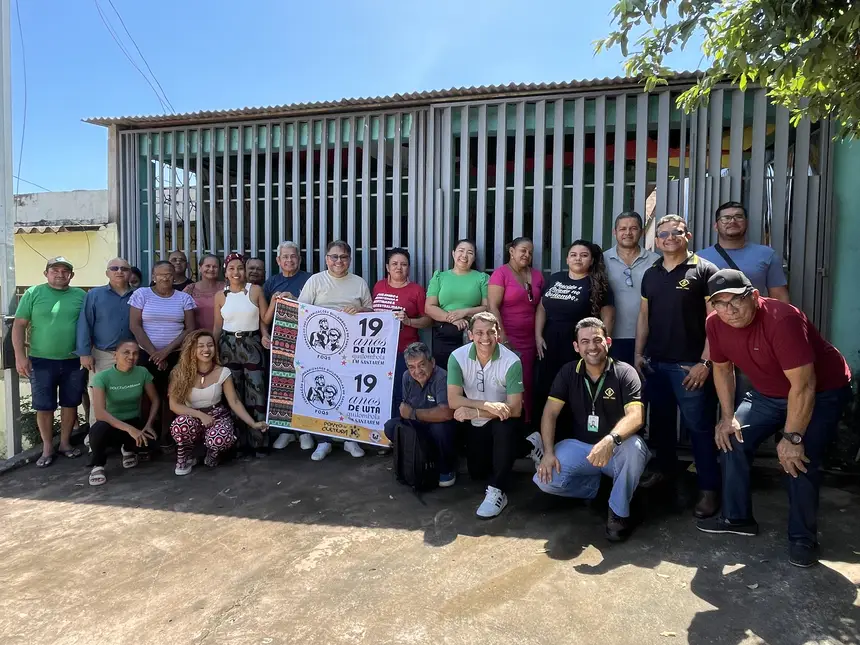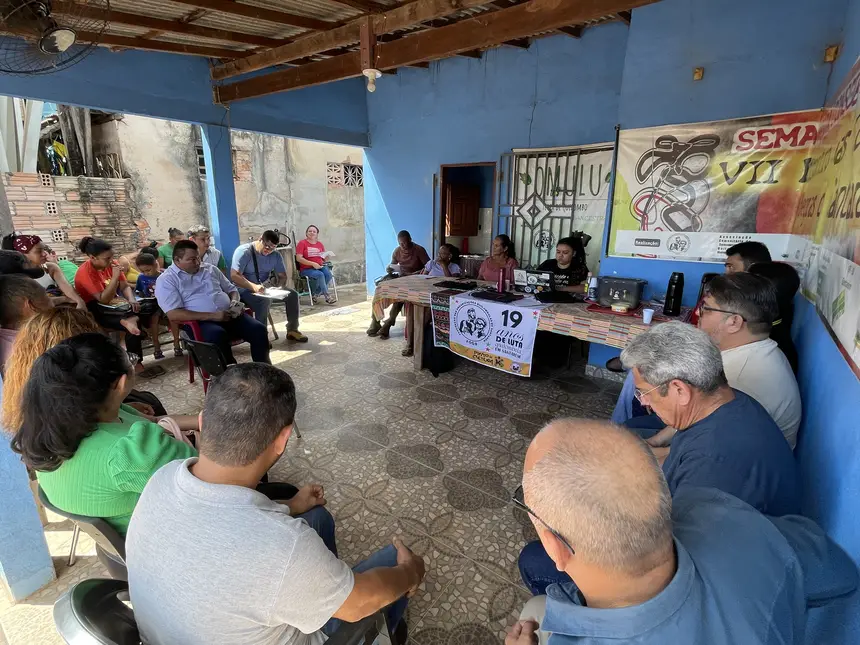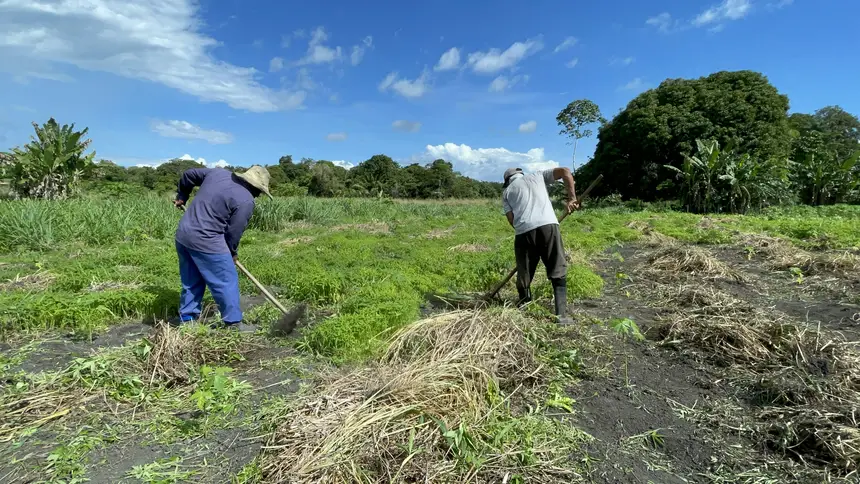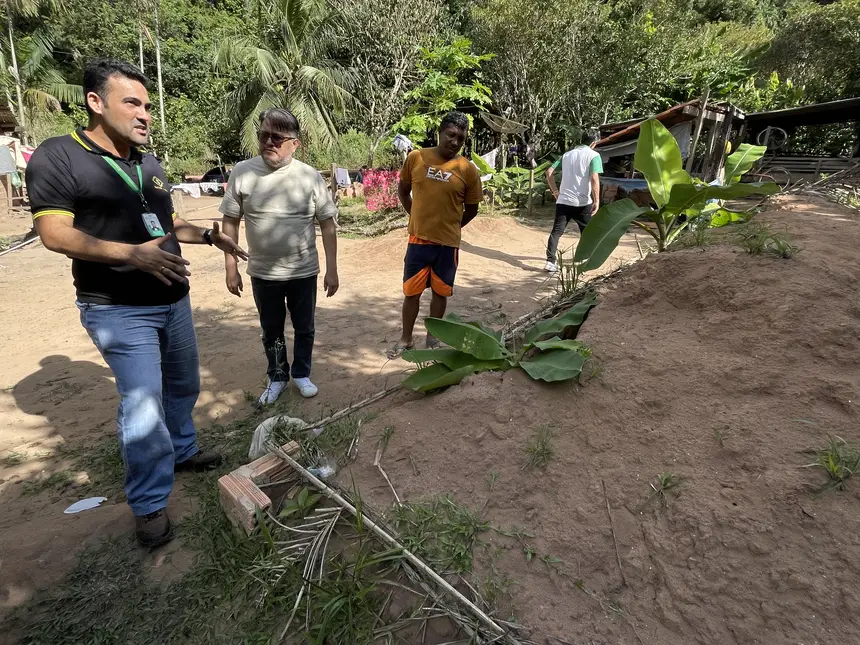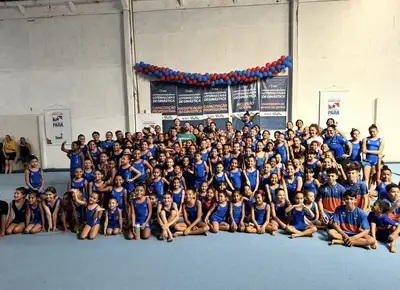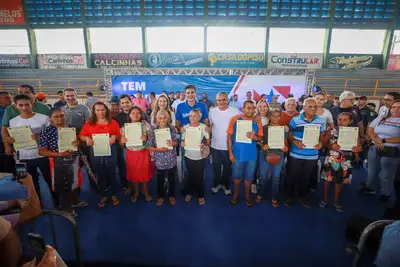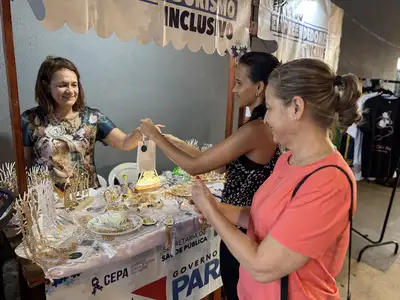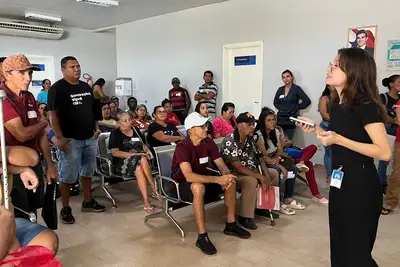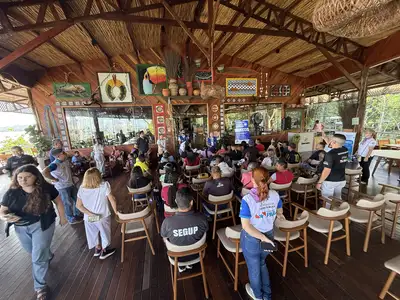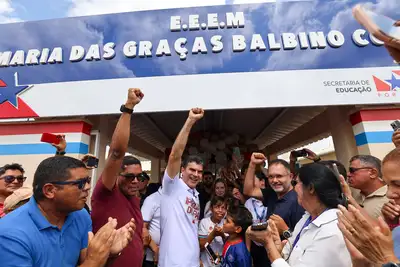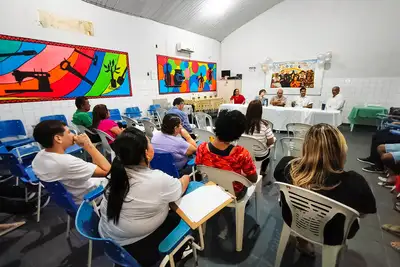State guarantees quilombolas access to credit lines
The government of Pará, through Emater, qualifies and encourages unprecedented projects in the state, providing access to benefits and financing for improvements to quilombola farmers
About 200 kilometers from Belém, the Quilombo Bom Jardim, in Santarém, western Pará, with 2,654.8628 hectares, holds within its territory stories of struggle, culture, ancestry, and resistance. A territory of origin for enslaved people from the Bom Jardim Farm, the farmers from the 49 families have also become an example of innovation and sustainability.
By dirt road along the BR-370 highway, the path to the first stop was along the shores of Lake Maicá, on the property of teacher and farmer Joilson Santos.
With a privileged view and on fertile land, Joilson used the benefit received from the National Program for Strengthening Family Agriculture (Pronaf A), intermediated through the Technical Assistance and Rural Extension Company (Emater-Pará) and conceived by the Ministry of Agrarian Development and Family Agriculture, to improve the cultivation of cassava, cocoa, and bananas. He was one of the first beneficiaries of the program in the state of Pará.
“Our quilombola community received this opportunity to participate in Pronaf A. Since we have had a partnership with Emater for many years, we called the technicians here, they presented us with a project, and when we presented it to the financing bank, we were benefited,” he said.
According to him, the 136 families total about 600 people in the Quilombola Territory of Bom Jesus, and as a traditional method of agriculture, the productions are made with family labor. “This way of cultivating adds values that we have, involving our relatives, helping people, helping each other, for the benefit of everyone within our community, in a totally collective way,” he stated.
Union of knowledge - He is assisted by the Local Office of Emater in Santarém, and one of the extensionists responsible for the project was Agnaldo Ávila. For him, the initial focus was on cassava planting.
“We worked with him in the agroforestry system. This system was made with cassava, shading, among other techniques that improved his planting,” he explained.
For Joilson, uniting ancestral knowledge and scientific knowledge brought great benefits to the quilombolas assisted by Emater. “The union of traditional knowledge and technical knowledge was important for us to see this increase in our production and consequently in our economies. This technical part presented and monitored by Emater has been fundamental for our growth. Because we already have our knowledge, which has been passed down from generation to generation, and when the technicians present us with new ways of managing the land and our products, it ends up adding and improving our final product,” he stated.
Flour House - Just under 1 kilometer from Joilson's plantation, the next stop was at the house of Lindonelson Santos, a flour producer who saw his economy improve after receiving the benefit acquired through Emater, from the credit line granted by Pronaf A.
“I have suffered a lot with flour production, and with access to resources, I improved the flour house and also bought an electric oven to speed up and increase my production. This partnership with Emater, which made the project and helped us, greatly improved my quality of life, the quality of the final product, and my sales,” emphasized the producer.
This is another example of the rural extension work done by the Government of Pará, through Emater, which brings small farmers the opportunity to improve their lives and the economy of those who live from the land. Extensionist Agnaldo Ávila explained how the acquisition and support process for the quilombola farmer took place.
“Lindonelson sought our office in Santarém. He already had a flour house, had experience with cassava production, and wanted to improve his work. Through Pronaf A, we managed to ensure he received financing for this flour house, to buy the machine, and also 1 hectare of cassava. We are now working so that he can become a seed producer, with the production of cassava seeds to become a supplier here in the region,” he concluded.
Innovation using pig waste - At another point in the quilombo, an innovative and completely sustainable project drew attention to how to use pig waste to improve not only the quality of the animals but also that of the entire community.
The farmer Ivomar dos Santos lives with his 16 children and wife, Rita Sousa dos Santos, and as a source of income, they have a pig farm in their backyard. However, the farmer began to face problems.
“The pig waste spread through the streets, in the ditches, and with the rains, the odor began to spread throughout much of the community. That’s when I sought Emater and found a solution,” he said.
The Emater extensionists, Haroldo Sousa and Gilvandro da Silva, created the project installed at Ivomar's house: the evapotranspiration pit. The solution served to inhibit odors and as a final result, it turned into fertilizer for banana cultivation.
The farmer reported that he saw the problem transform into a solution, turning the backyard into a completely sustainable system. "I had access to the rural program through Emater, and this experience was a true novelty. We used to farm to survive, and now it has become a source of income for my family in a sustainable way,” he concluded.
Partnership that strengthens - The Government of Pará, through Emater, values the rural support for quilombolas, with dialogue and special care for traditional peoples throughout the state.
One of the ways to value the communities in the territories is to know the field and, through rural extensionists, create and provide access to the assisted, taking into account the specificities of each community.
The president of the Federation of Quilombola Organizations of Santarém (FOQS), in Santarém, Miriane Coelho, highlighted Emater's role as a fundamental means in the work of accessing credit lines and documentation for quilombola farmers.
“Since we started the partnership with Emater, we have had a differential in documentation. Many out there issue the Family Farmer Registration (CAF), but only Emater goes to the field to know the territory, to know the people, and this adds to our specificities and the work of the producer. There is another important detail, which is that only Emater works with our true agenda, which issues the CAF with quilombola identification and identifies the territory of that family. In addition, Emater teaches how to improve; it is an opinion maker on how to access rural benefits, as well as other benefits for small farmers.”
Access to Credit - Pronaf A, from the Ministry of Agrarian Development and Family Agriculture, finances projects that generate income for family farmers, land reform settlers, quilombolas, and indigenous peoples, valuing actions and projects, promoting sustainable development and the social and economic inclusion of these populations, which were previously less assisted.
To be assisted by the program, indigenous and quilombola people must reside and have rural enterprises located on homologated indigenous lands and in quilombos certified by the Palmares Foundation, respectively.
The resources received can be applied to the implementation, expansion, and modernization of production infrastructure, as well as in agricultural and non-agricultural services, among other investments.
Policy on Diffuse and Collective Rights - For the president of Emater, Joniel Abreu, these examples show how the Government of Pará acts in valuing rural farming families and quilombolas located throughout the state.
“Our rural extensionists have been working in the field to bring these improvements to the Bom Jardim Community, for example. These are examples of how the State Government brings development to the field, so that this translates into improvements in the work and quality of life of quilombolas, who are part of one of our institutional public policies at Emater, which is that of diffuse and collective rights,” he explained.
Emater Pará has a policy of Interest in Diffuse and Collective Rights, which was established through Ordinance No. 0456/2023, dated 07/05/2023, and implemented on 07/10/2023. In it, policies of equity in gender, generation, race, and ethnicity relations were assigned as a priority for the company to implement general guidelines, as well as the provision of technical assistance and rural extension services to indigenous peoples, quilombola communities, and women, among others.


